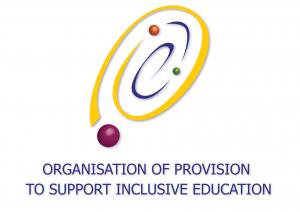A Resource for Developing Collaborative Policy and Practice
Introduction
In response to the project key question: How are systems of provision organised to meet the needs of learners with disabilities in inclusive settings? the Agency Organisation of Provision project (OoP) set out to provide concrete examples to help countries to move towards a rights-based approach to education. Such a move requires a change in approach from organising provision for learners with disabilities in terms of individual support (often based on medical diagnosis) to considering how systems are organised to support mainstream schools to fulfil the rights of all learners. This means that policies should enable all learners to express their views, have access to assistance when needed, to attend their local mainstream school with their peers and enjoy equal access to ‘equivalent’ educational opportunities without discrimination.
A meeting of European Union Education Ministers in Paris in March 2015 led to a Declaration on Promoting Citizenship and the common values of freedom, tolerance and non-discrimination through education. Ministers agreed to strengthen actions to ensure inclusive education which, among other outcomes, combats racism and discrimination on any grounds and teaches learners to understand and accept differences of opinion, conviction, belief and lifestyle.
The Resource
Agency member countries have requested materials that can be used in a more practical way to support the implementation of project recommendations. The project stressed the importance of developing ‘learning communities’ and working with parents and key stakeholders to bring about change. This resource, therefore aims to bring together materials from the OoP project and other Agency work, along with key materials from other agencies to provide a framework for the collaborative dialogue that is essential for progress. The materials included, when used as a basis for reflection and discussion, should have an impact on the values and attitudes as well as knowledge and understanding of all those engaged in the debate.
As well as ensuring ‘ownership’ of and a shared commitment to inclusive policy and practice among all stakeholders, these materials should help communities to achieve greater clarity around inclusive education and overcome any barriers presented by different professional contexts – different language, culture and traditions. While these materials make reference to a broad definition of inclusive education as an issue that concerns all learners, the UN Convention on the Rights of persons with Disabilities has a prominent place due to the original project question. In discussions, however, the rights of all learners (and reference to the UN Convention on the Rights of the Child) should be kept in mind.
The main audience for these materials is decision makers at national and local levels who, while they are more generally involved in operational discussions, should create opportunities for dialogue that focuses on strategic approaches. More detailed guidance can be found in the User Guide.
Click on the various elements of the image below to discover the related resources.
This resource is also available in Swedish.
